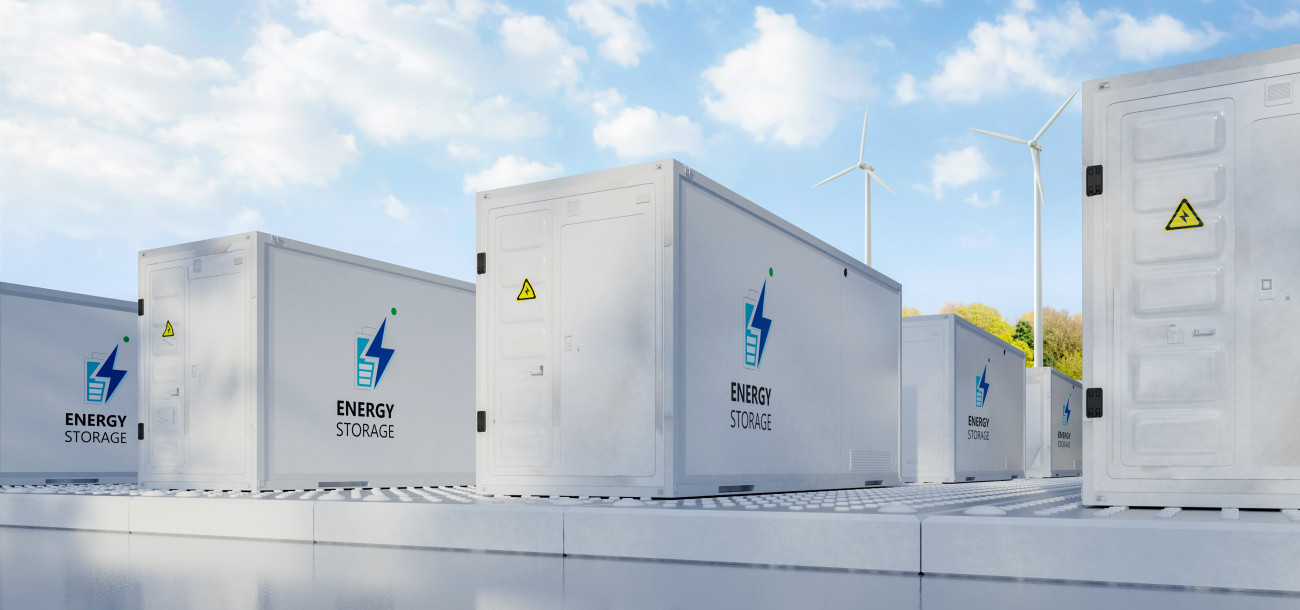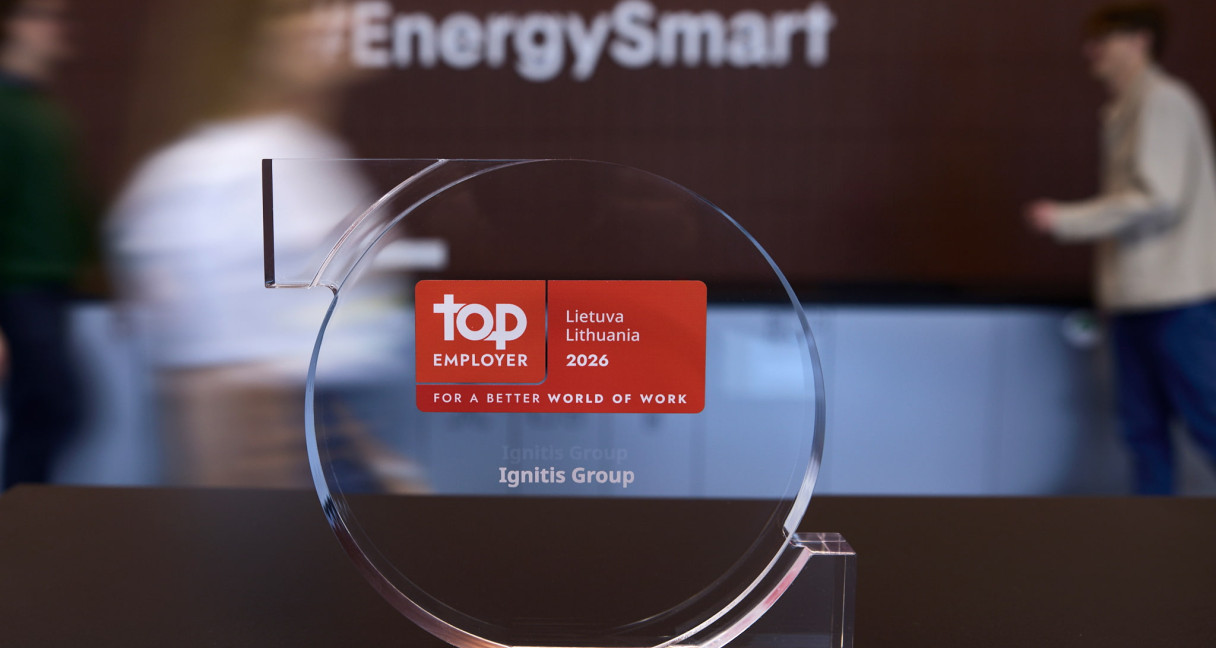Ignitis Group starts building battery energy storage parks in Lithuania
Ignitis Group, a renewables-focused integrated utility, is starting the construction of battery energy storage systems (BESS) in Lithuania. Battery energy storage parks will be installed around Kelmė, Mažeikiai and Kruonis. With a combined 291-megawatt (MW) power and 582 megawatt-hour (MWh) storage capacity, they are one of the first utility-scale BESS projects in the country. This technology stores surplus electricity and sends it back when the demand increases, thus helping to balance the system and ensure reliable electricity supply. The total investments into battery energy storage parks amount to around EUR 130 million.
“Power generation from renewables is growing in Lithuania, which makes battery energy storage systems an important guarantee of reliability. They make the network more flexible, enable efficient use of green energy and help maintain stability even through heavy fluctuations. Battery energy storage systems are a key component of green transition as they will help integrate more green capacities, balance the fluctuations in power prices as well as reduce them,” says Darius Maikštėnas, CEO of Ignitis Group.
BESS will be developed in three sites, including Kelmė and Mažeikiai wind farms, which are operated by the international green energy company Ignitis Renewables, as well as by Kruonis Pumped Storage Hydroelectric Power Plant, operated by Ignitis Gamyba.
Usually, after considering the system needs and technical capacity, BESS are installed near operating power plants, where they help manage local system loads more efficiently. BESS will facilitate the integration of more green capacities and increase network resilience, thus making the entire system more reliable. They will also contribute to national energy goals and strengthen regional energy infrastructure.
The construction of all BESS projects is estimated to commence this year with commercial operations planned for 2027. The German company Rolls-Royce Solutions GmbH will provide the equipment and the integration services for all three BESS projects. The information and generation control systems of the BESS will be protected against remote access from countries identified as posing a threat under Lithuania’s National Security Strategy.
How do battery energy storage systems work?
Battery energy storage systems are becoming an important component of the energy infrastructure and allow for a more efficient utilisation of the generated energy. BESS can store the electricity received from the network and directly from power plants, including wind and solar farms. They work on a similar principle to batteries used at home, just at a much bigger scale. The stored energy is returned to the network when it is needed the most or in case of lower power generation.
These solutions contribute to a more efficient operation of the energy system, help balance the fluctuations in power generation and consumption as well as decrease the reliance on reserve fossil-fuel-fired power plants. They make electricity supply more reliable and resilient to short-term fluctuations in power generation and consumption.
Their major feature is their ability to integrate wind and solar capacities more efficiently as power generation windows sometimes do not coincide with peak demand. They are one of the key components of energy independence and long-term climate neutrality goals.
“Battery energy storage systems bridge two principal aims of renewables, which is generating clean energy and ensuring its consistent supply. The window is now open for smart and sustainable innovations,” says A. Dučinskas.
Reliable and secure infrastructure
BESS react to changes in the network in real time and turn on exactly when it is necessary to ensure system stability, which helps maintain consistent supply of electricity even when poor weather conditions affect power generation. They protect against unexpected disruptions and contribute to smooth network operation.
The state-of-the-art battery storage technologies are designed for maximum safety and under strict environmental standards. They do not pollute, they operate quietly and can be integrated in the current energy infrastructure. In certain conditions, cooling fans may be turned on, but the noise they generate is minimal and can be further reduced if necessary to maintain the comfort of nearby residents. Additional security is ensured with fire safety systems and constant maintenance.
“These systems benefit both the system and the people. They do not draw attention but ensure that electricity supply is always constant. For energy infrastructure, this is a step forward because you no longer have to choose between clean and reliable energy. Both these aspects can now go hand in hand, quietly and sustainably,” notes A. Dučinskas.





